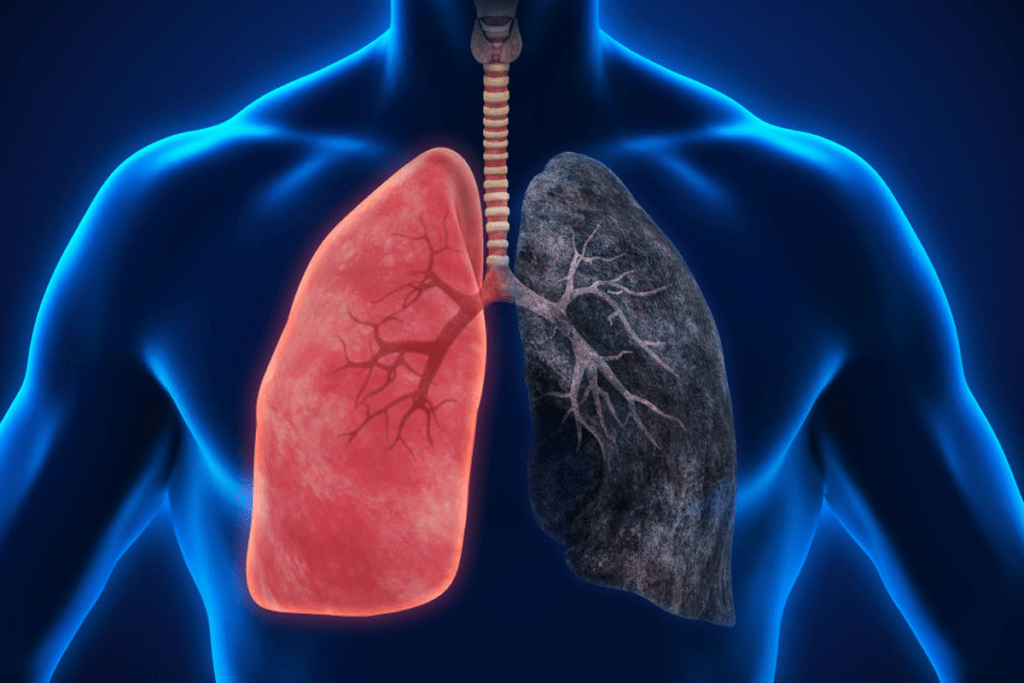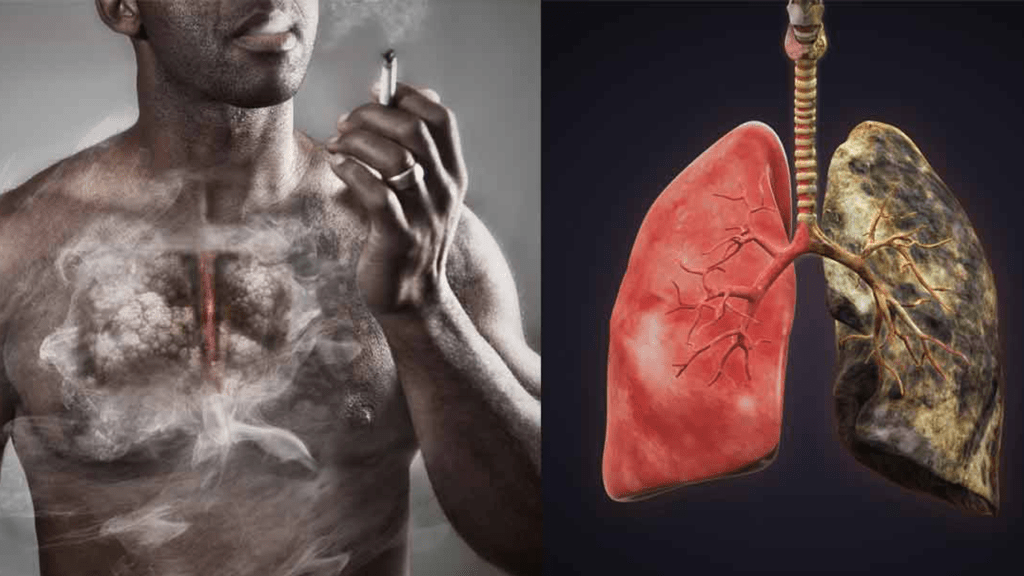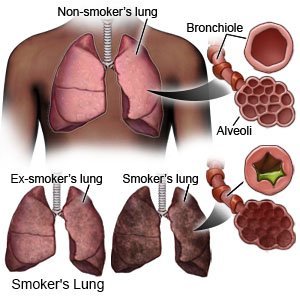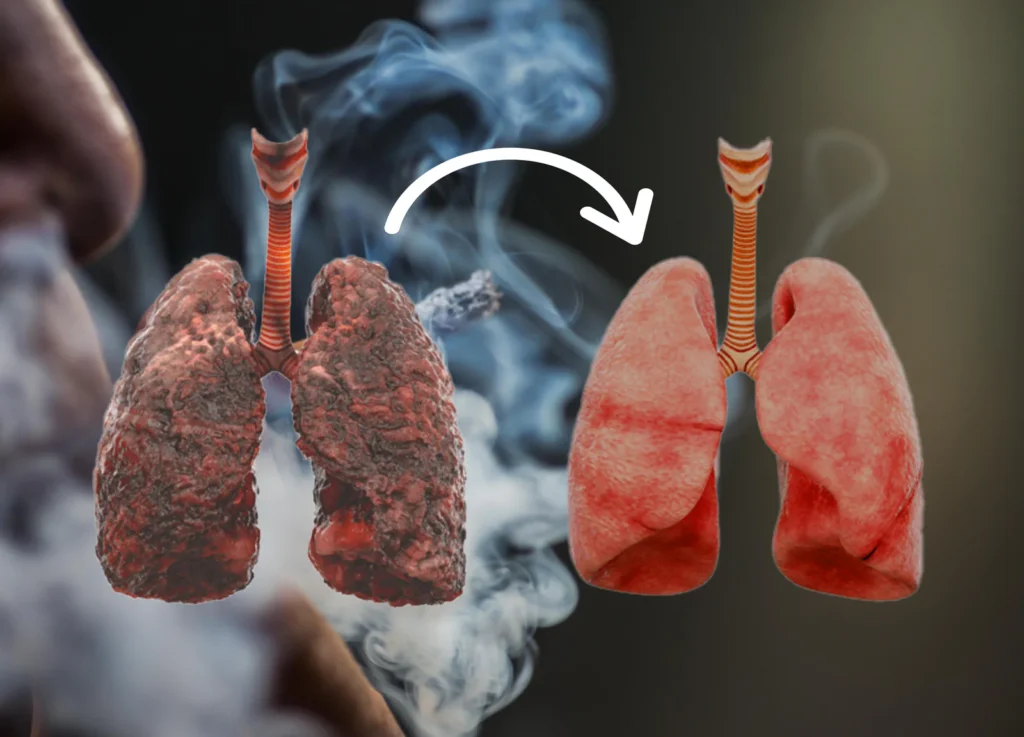Smoking is one of the leading causes of preventable illness and death worldwide. While most people associate it with lung cancer, the harmful effects of tobacco go far beyond the lungs. From your brain and heart to your kidneys and reproductive system, smoking negatively impacts nearly every organ in your body.
This blog explores how smoking damages each major organ system, the long-term health risks, and why quitting—even after years of smoking—can significantly improve your health.
What’s in a Cigarette?
A single cigarette contains over 7,000 chemicals, including:
- Nicotine – an addictive substance
- Carbon monoxide – a poisonous gas
- Tar – damages lung tissue
- Formaldehyde, benzene, arsenic, and ammonia – known carcinogens
These substances are inhaled directly into the bloodstream and tissues, causing both immediate and long-term damage.
Impact on the Respiratory System
1. Lungs:
Smoking is the primary cause of chronic obstructive pulmonary disease (COPD), including emphysema and chronic bronchitis. It damages the airways and destroys lung tissue, making breathing progressively harder. Smokers are also at higher risk of:
- Lung cancer
- Frequent respiratory infections
- Reduced lung capacity
2. Nose and Throat:
Irritation of the throat, chronic cough, and an increased risk of throat and laryngeal cancer are common among smokers.
Cardiovascular System: Heart and Blood Vessels
Smoking contributes significantly to heart disease, one of the leading causes of death globally. It:
- Increases blood pressure
- Hardens and narrows arteries (atherosclerosis)
- Reduces oxygen supply to the heart
- Increases risk of heart attack, stroke, and peripheral artery disease
Even occasional smoking or secondhand smoke can trigger cardiovascular events.



Digestive System
Smoking affects the digestive tract in several ways:
- Increases acid production, causing heartburn and ulcers
- Slows healing of ulcers
- Increases risk of stomach and pancreatic cancer
- Impairs liver function, affecting detoxification
Brain and Nervous System
Nicotine affects the brain almost immediately after inhalation:
- Creates temporary stimulation, followed by fatigue and depression
- Increases the risk of stroke due to blood vessel damage
- Long-term use changes brain chemistry, leading to addiction and withdrawal symptoms
Over time, smoking is linked to cognitive decline and dementia.
Reproductive and Sexual Health
Men:
- Reduced sperm count and motility
- Erectile dysfunction due to reduced blood flow
Women:
- Reduced fertility
- Increased risk of complications during pregnancy (miscarriage, ectopic pregnancy, low birth weight)
- Premature menopause
Smoking can also affect the menstrual cycle and hormone balance.
Skin, Hair & Eyes
Smoking accelerates visible aging:
- Wrinkles due to reduced blood flow and collagen breakdown
- Dry, dull skin and delayed wound healing
- Yellowing of teeth and fingers
- Increased risk of cataracts and macular degeneration
Immune System & Healing
Smoking weakens the immune system, making you:
- More vulnerable to infections
- Slower to heal after injuries or surgeries
- More likely to develop autoimmune disorders
This affects the body’s ability to fight off common illnesses and chronic diseases.
Long-Term Health Risks
Long-term smokers are at increased risk of:
- Multiple cancers (lungs, mouth, throat, esophagus, bladder, pancreas, kidney, cervix)
- Chronic respiratory illnesses
- Cardiovascular disease
- Reproductive health issues
- Reduced life expectancy by 10–14 years
Even light or occasional smoking contributes significantly to these risks.
Secondhand Smoke: A Silent Killer
Non-smokers exposed to secondhand smoke are also at risk for:
- Heart disease
- Lung cancer
- Asthma and respiratory infections (especially in children)
- Pregnancy complications in women
There is no safe level of exposure to secondhand smoke.
The Good News: Your Body Can Heal
Quitting smoking leads to immediate and long-term benefits:
- 20 minutes after quitting: Heart rate and blood pressure drop
- 12 hours: Carbon monoxide levels return to normal
- 2–12 weeks: Lung function and circulation improve
- 1 year: Risk of heart disease is halved
- 10 years: Risk of lung cancer drops by half
- 15 years: Risk of heart disease is nearly the same as a non-smoker
The sooner you quit, the greater the benefits.
Tips to Quit Smoking
- Seek professional help or counseling
- Use nicotine replacement therapies (NRT) or prescribed medications
- Join support groups or quit-smoking programs
- Avoid triggers like alcohol or social situations that tempt smoking
- Stay active and manage stress with healthy alternatives
Your doctor can help you find the best method based on your needs and health condition.
Conclusion
Smoking is a major risk factor for multiple health conditions and negatively impacts nearly every organ in your body. The long-term effects can be life-threatening, but the good news is that it’s never too late to quit. By stopping smoking, you give your body the chance to heal and significantly improve your quality and length of life.

